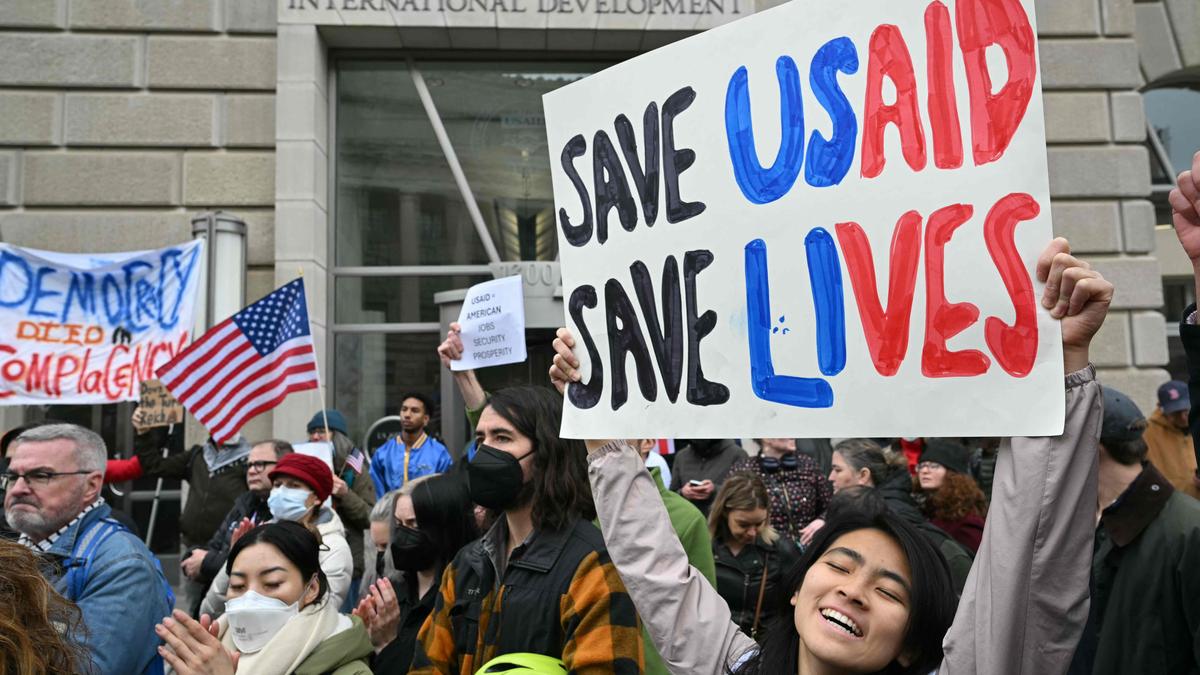USAID Explained: Why Trump and Musk Want to End U.S. Foreign Aid
International International NewsPosted by NewAdmin on 2025-02-04 08:41:49 |
Share: Facebook | Twitter | Whatsapp | Linkedin Visits: 25

USAID's Role and Trump's Push for Reform
The United States Agency for International Development (USAID) is the primary U.S. government body responsible for administering foreign aid and development assistance around the world. Its mission is to promote global stability, economic growth, and humanitarian aid through projects that focus on health, education, democracy, and governance. However, the agency has been under scrutiny in recent years as part of President Donald Trump’s efforts to reshape the federal government and reduce spending on international programs.
The Conflict with Elon Musk’s DOGE
Tensions between USAID and the Trump administration escalated over the weekend when two top security officials at USAID were removed after they denied access to representatives from Elon Musk’s Department of Government Efficiency (DOGE). DOGE, a controversial initiative backed by Musk, aimed to streamline government agencies by eliminating inefficiencies, often using private sector methods. The refusal to grant access to DOGE officials was framed as a direct challenge to Trump’s broader goals of federal government reform.
Musk’s Call to Abolish USAID
Musk has been vocal in his criticism of USAID, even going as far as labeling it a “criminal organization” and repeatedly calling for its “death.” He argues that the agency’s operations are wasteful and ineffective, suggesting that private sector solutions could be more efficient in addressing global challenges. Musk's influence has further fueled the debate over the role of government in international aid, with some advocating for a significant reduction or total elimination of USAID's operations.
Ongoing Debate Over Foreign Aid
The situation highlights the broader ideological divide on U.S. foreign aid and government intervention in global development. While supporters of USAID argue that it plays a crucial role in advancing American values and interests abroad, critics, including Trump and Musk, view it as bloated and ineffective. As the debate continues, the future of USAID remains uncertain, with potential implications for U.S. foreign policy and global humanitarian efforts.
Search
Categories
Recent News
- Earth's Atmosphere: A Cosmic Balancing Act
- Indian Shooting Triumphs: Rana's Bronze and Team Silver
- Andhra Pradesh MLA's Unique Scooter Inspection Tour
- Air India's Fuel Switch Woes: A Troubling Pattern
- Mamata Banerjee's Supreme Court Showdown: A Battle for Democracy
- AP EAPCET 2026: Unlocking Andhra Pradesh's Engineering Aspirations
- Fatal Leap: Man's Tragic Encounter with Overhead Wires
- CCTV Catches the Uncatchable: Brazen Burglary Attempt in Uttar Pradesh
Popular News
- Navigating IPO Market Dynamics Amid Volatility and Regulatory Changes
- Massive Worldwide Microsoft Outage Disrupts Multiple Sectors
- Panjapur Bus Stand to Reshape TNSTC Routes
- తెలుగుదేశం పార్టీ - పేదరికాన్ని నిర్మూలించడంలో వాగ్దానం
- Universities Embrace Remote Learning Technologies Amidst Ongoing Pandemic